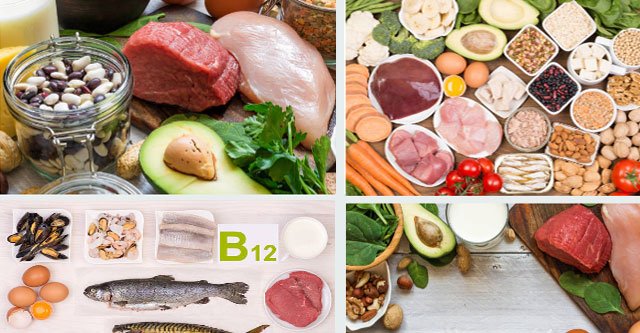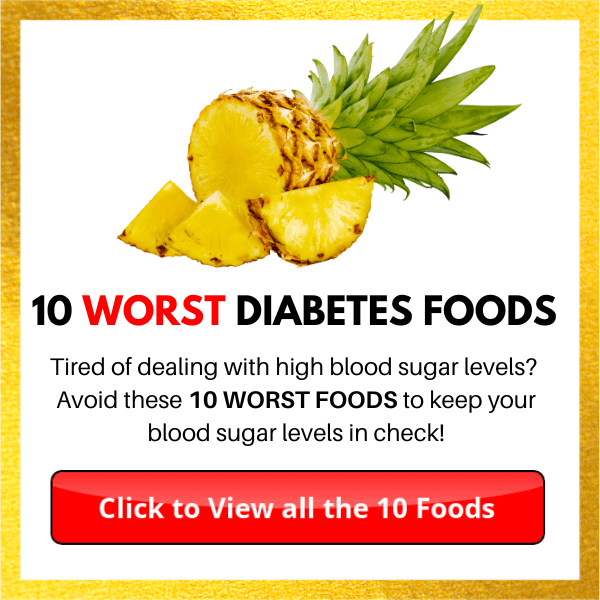Last Updated on August 2, 2021 by Dr Sharon Baisil MD
Vitamin B12 is a type of water-soluble vitamin that helps carry out various body functions, including the proper functioning of brain nerves.
12 foods that are rich in Vitamin 12
1. Clams
Clams are full of nutrients and are very small in size.
There is no doubt that Clams are full of nutrients, especially Vitamin B12.
The 20 small Clams can contain approximately 7,000% Daily Value (DV) of vitamin B12.
Clams also possess excellent antioxidant properties, which are very beneficial for health.
There are various varieties of Clams which are available in the market. Some of them are soft-shell clams, Manila Clams, Atlantic hard-shell Clams, etc.
Baby Clams contain the right amount of iron content in them with Vitamin B12. Approximately 200% Daily Value of Iron is present in 100 grams of baby Clams.
It is fascinating to know that the broth of clams is also a good source of Vitamin B12.
Health benefits of Clams include:
- Strengthen bones
- Provides energy
- Prevents diseases
2. Sardines
It is always advised to buy fresh Sardines for the best health. Sardines are full of nutrients. If you include Sardines in the diet, this food will provide you with almost all types of nutrients in different amounts.
A 1 Cup that is approximately 150g of sardines (drained) can contain approximately 554% Daily Value (DV) of vitamin B12.
Additionally, Sardines contain high amounts of omega-3 fatty acids. These omega-3 fatty acids are very beneficial for health.
Some health benefits of Sardines includes:
- Strengthen bones.
- Prevents diseases like inflammatory diseases
- Lowers cholesterol levels
- Keep heart (Cardiac conditions) healthy.
3. Beef
There is no doubt that Beef is full of nutrients, especially Vitamin B12.
200g of Beef can contain approximately 465% Daily Value (DV) of Vitamin B12.
The Vitamins are largely exposed to the body in the roast or grill form of Beef. Frying Beef may reduce its vitamin content.
Beef also contains high levels of vitamins B2, B6, and B3.
Also, 200g of Beef can contain approximately 100% Daily Value (DV) of zinc and selenium.
Some health benefits of Beef include:
- Strengthen muscles
- Strengthen bones
- Helps in manufacturing Red Blood Cells (RBC) on the body and thus prevents situations of anemia
- Act as antioxidants
4. Fortified cereals
To get a proper understanding of this topic, we need first to analyze what Fortified Cereals are?
These are the cereals in which artificial nutrients are added to make them rich in nutrient contents. Normally, for health conditions of the body, fortified cereals are not generally recommended.
However, they are excellent sources of B vitamins and especially rich in vitamin B12.
60g of Fortified Cereals can contain approximately 62% Daily Value (DV) of Vitamin B12.
health benefits of Fortified Cereals include:
- Best source for all types of nutrients
- Strengthen bones
- Boost up brain activity
5. Tuna
Tuna is a variety of fish that is consumed by many nowadays. Fishes are excellent sources of proteins, vitamins, nutrients, and minerals.
Tuna Fish is rich in Vitamin B12, especially muscles that are present under the skin.
100g of Tuna fish can contain approximately 453% Daily Value (DV) of Vitamin B12.
Additionally, Tuna Fish is an excellent source of phosphorus, proteins, vitamin A, selenium, and vitamin B3.
Health benefits of Tuna include:
- Keep heart (Cardiac conditions) healthy
- Weight loss
- Prevents Cancer
- Skin health gets improved
6. Crab
Crab is a kind of seafood. Nowadays, people start including crabs in their diets to stay healthy. Crabs are an excellent source of minerals, vitamins, and nutrients. Thus, it can be the best choice among nutritional food. There are various kinds of crabs in the market, like blue crab, Dungeness crab, etc.
These crabs are rich in vitamins and especially contain high levels of Vitamin B12.
100g of Dungeness crab contains approximately 368% Daily Value (DV) of Vitamin B12.
Also, 100g of blue crab contains approximately 110% Daily Value (DV) of Vitamin B12.
Different varieties of crab contain different vitamin content in them.
Health benefits of crab include:
- Strengthen bones
- Provide instant energy
- Helps to maintain the accurate blood pressure of the body.
7. Trout
Trout is a variety of fish that is consumed by many nowadays. Fishes are excellent sources of proteins, vitamins, nutrients, and minerals. Trout can be the healthiest fish that can be consumed.
100g of Trout fish can contain approximately 312% Daily Value (DV) of Vitamin B12.
Additionally, Trout contain excellent amounts of omega-3 fatty acids. These omega-3 fatty acids are very beneficial for health.
Health benefits of Trout include:
- Calories content is less in Trout.
- Strengthen bones
- Provides energy
8. Cheese
Dairy Products are the best source of minerals and vitamins. Researchers have claimed that Vitamin B12 obtained from cheese gets easily absorbed by the body compared with eggs, fish, Beef, etc.
Varieties of cheese include Mozzarella Cheese, Gjetost Cheese, Tilsit Cheese, Brie Cheese, Swiss Cheese, Feta Cheese, etc.
These varieties of cheese have different amounts of vitamin B12 content in them. Swiss Cheese contains the highest amounts of Vitamin B12.
Among the various varieties of cheese, Swiss cheese contains considerable amounts of Vitamin B12. 22g of Swiss cheese can contain approximately 28% Daily Value (DV) of Vitamin B12.
Health benefits of cheese include:
- Strengthen bones
- Excellent source of proteins
- Improves Nerves and thus brain activity
9. Fortified non-dairy milk
Many of you must be thinking about what Fortified non-dairy milk is?
These are the non-dairy milk products in which artificial nutrients are added to the milk too rich in nutrient contents. Normally For healthy health conditions of the body, fortified non-dairy products are not generally recommended.
However, they are excellent sources of B vitamins and especially rich in vitamin B12.
250 ml of soy milk can contain approximately 86% Daily Value (DV) of Vitamin B12.
If someone is suffering from a deficiency of Vitamin B12, particularly, they can opt for non-dairy milk products for the supplements of vitamin B12.
Health benefits of non-dairy milk include:
- Strengthen bones
- Provides energy
10. Animal liver and kidney
Meats are very nutritious and can be proven best for nutritional content. Animal meats are a rich source of nutrients, minerals, proteins, and vitamins.
Animal kidneys and liver are excellent sources of Vitamin B12.
100g of lamb liver can contain approximately 3,571% Daily Value (DV) of Vitamin B12.
Also, 100g of lamb kidney can contain approximately 3,000% Daily Value (DV) of Vitamin B12.
Apart from this, lamb kidneys are an excellent source of selenium and vitamin B2.
Health benefits of Animal liver and kidney include:
- Improves digestion
- Excellent source of proteins
- Give strength
- Enhance the immune system of the body
11. Milk and dairy product
Dairy Products are the best source of minerals and vitamins.
240 ml (1cup) of milk can contain approximately 46% Daily Value (DV) of Vitamin B12.
Researchers have proven that Vitamin B12 obtained from milk gets easily absorbed by the body compared with eggs, fish, Beef, etc.
Examples of some dairy products include butter, cream, yogurt, cheese, etc.
There are various varieties of cheese in which Swiss cheese contains considerable amounts of Vitamin B12. 22g of Swiss cheese can contain approximately 28% Daily Value (DV) of Vitamin B12.
Health benefits of milk and dairy products include:
- Strengthen bones
- Provides energy
- Prevents diseases
- Enhance the Immune system (The ability of our body to fight diseases) of the body.
12. Eggs
Eggs possess excellent contents of proteins, vitamins especially vitamin B2 and Vitamin B12.
100g of eggs (2eggs) can contain approximately 46% Daily Value (DV) of Vitamin B12 and 39% Daily Value (DV) of Vitamin B2.
Each egg comprises two parts: the white part and the yolk part (yellow part).
It is always advised to eat the whole egg and not just a single part of it, as both the egg parts have nutritional content.
The yellow portion of the egg is called the yolk containing more vitamin B12 content than the white part of the egg. Also, vitamin B12 from the yolk part gets easily absorbed in the body.
Vitamin D can also be found in significant amounts in eggs.
Health benefits of Eggs includes:
- Excellent source of proteins
- Give strength
- Prevents diseases
- Improves brain health
What is the importance of Vitamin B12 in the diet?

- Enhance nerves health
- Helps in the production of RBC stands for Red Blood Cells.
- Enhance Brain Activity
- Helps in the production of Deoxyribonucleic acid (DNA).
- Keeps away conditions like anemia (anemia is a health condition in which people get easily tired).
- Prevent complications and defects at the time of delivery.
- Keep Bones healthy.
- Helps someone to Keep away from situations like depression.
- Boost energy.
The RDI, which means Reference Daily Intake of Vitamin B12, is approximately 2.5 mcg, but this value gets slightly increased for breastfeeding or pregnant women.
Certain proteins help in the absorption of Vitamin B12. Such proteins are known as Intrinsic proteins or Intrinsic Factors.
These factors enhance Vitamin B12 in cells and blood by binding with the Vitamin B12 molecules.
The excess amounts of Vitamin B12 are stored in the body’s liver. If someone consumes large amounts of Vitamin B12, then Reference Daily Intake.
Vitamin B12 stored in the liver of the body can be used in the future if needed.
The body produces Intrinsic proteins or Intrinsic Factors. If the body cannot make the appropriate amount of Intrinsic proteins, this will lead to a deficiency of Vitamin B12 in the body.
The deficiency of Vitamin B12 can also be caused if we don’t follow proper diets full of vitamins and minerals.
Who is prone to deficiency of Vitamin B12?

- Pregnant women
- Breastfeeding women
- Vegetarians
- People with intestinal diseases
- People who have recently undergone any surgery
Conclusion
Vitamin B12 is an important nutrient that is required by the body. The specialty of this nutrient is that it can’t be manufactured naturally by our bodies. Direct supplements in the form of food must be provided to the body to overcome the deficiency of Vitamin B12.
There are various kinds of different food items that contain high levels of Vitamin B12. One should opt for this food to avoid the deficiency of Vitamin B12.
References
- https://www.nature.com/articles/254148a0
- https://www.cambridge.org/core/journals/british-journal-of-nutrition/article/vitamin-b12-metabolism-in-the-fruit-bat-rousettus-aegyptiacus-the-induction-of-vitamin-b12-deficiency-and-its-effect-on-folate-levels/C3BDC628AC1DAEF87C2F649056C64B82
- https://journals.sagepub.com/doi/pdf/10.1177/15648265080292S129
- https://pubs.rsc.org/en/content/articlelanding/2013/ay/c3ay26320g/unauth#!divAbstract
- https://www.sciencedirect.com/science/article/abs/pii/S0939475311002353
- https://www.frontiersin.org/articles/10.3389/fnut.2019.00093/full
- https://www.mdpi.com/2072-6643/10/2/181
- https://www.tandfonline.com/doi/abs/10.3109/08880018.2013.829894
- https://journals.sagepub.com/doi/abs/10.1177/000992288602500708
- https://www.karger.com/Article/Abstract/46689









